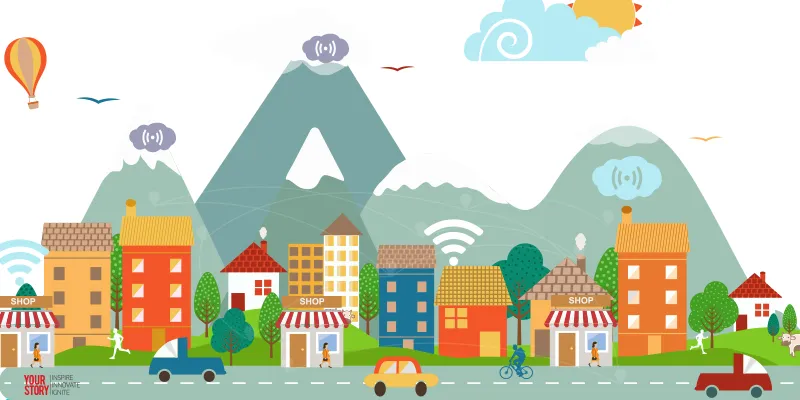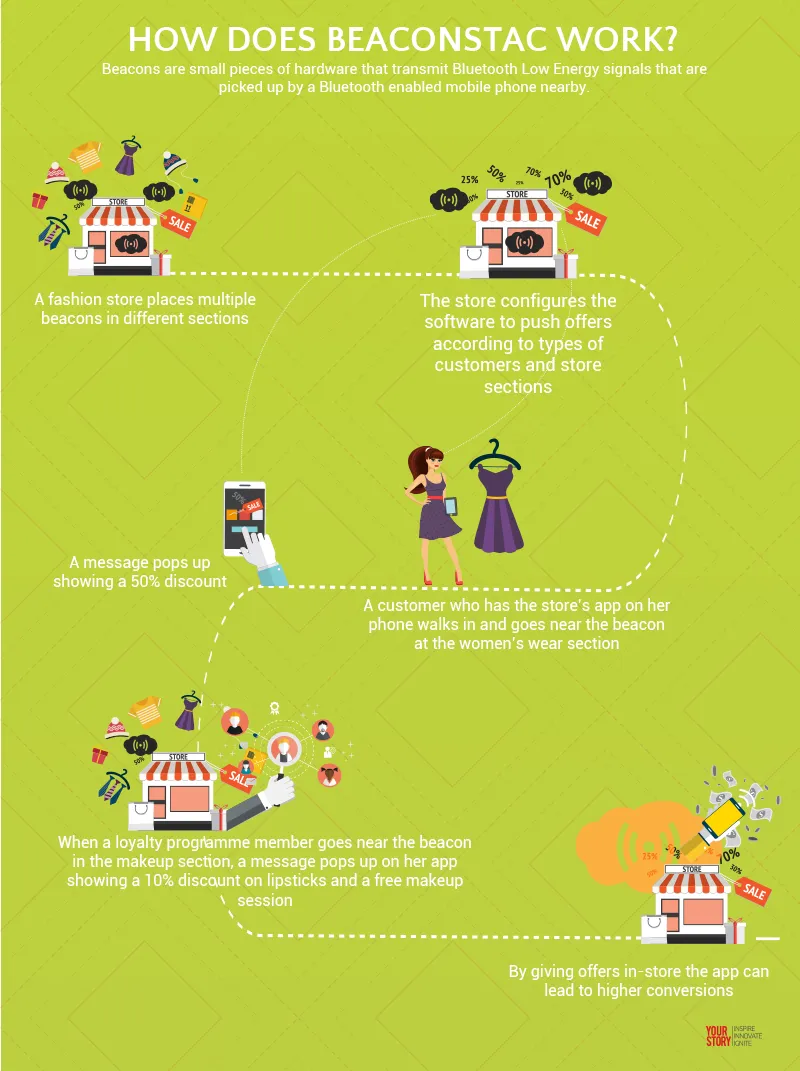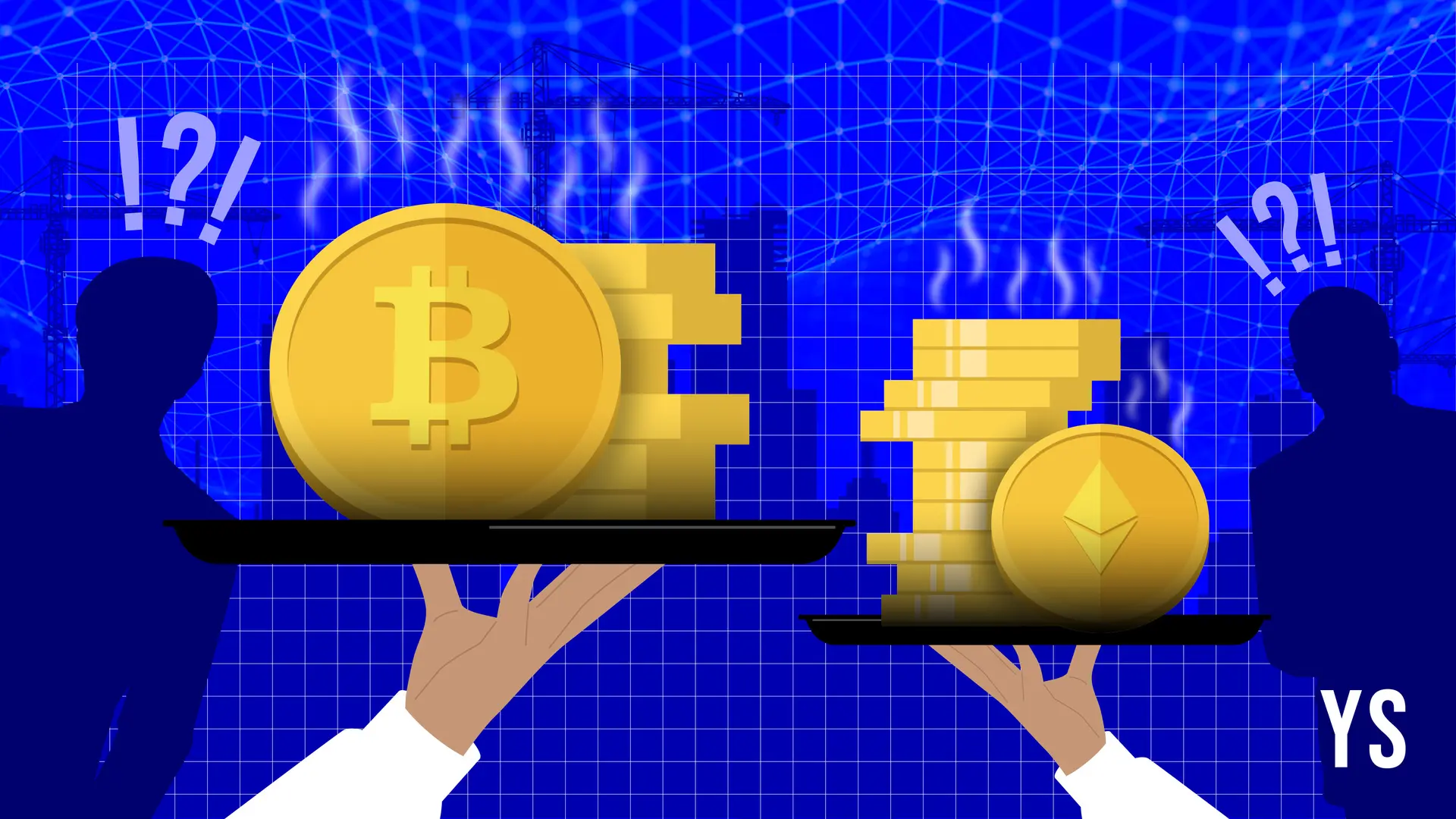Bengaluru startup’s beacons bring online-style customer intelligence to the offline world

Imagine you walk into a fashion store and while you are looking at jeans, a message pops up through the store’s app on your phone. It is a special 5% discount on jeans just for you. Chances are you will go ahead and buy a pair of jeans at that store.
Mobile technology startup Mobstac has joined the likes of Qualcomm’s Gimbal and Facebook to create a ‘beacon’-based solution that lets offline retailers do just this.
Online retail sites have access to tonnes of data -- from gender to the products bought during previous visits -- on a potential shopper the moment she logs on to the site. With this information, the site can personalise the display or even promote specific offers targeted at that customer. Brick and mortar stores do not know anything about a shopper browsing in their store. At least not until checkout and that too only if she is part of the loyalty programme.
Six-year-old Bengaluru-based Mobstac is using beacons to bring rich customer knowledge to the offline world.
A beacon, simply put, is a small piece of hardware that transmits Bluetooth Low Energy (BLE) signals that are picked up by a Bluetooth enabled mobile phone nearby, helping the device pinpoint a person’s location indoors. BLE or Bluetooth Smart is similar to regular Bluetooth but consumes much lower power and most mobile devices now support this version.
GPS location has already disrupted many industries like taxi services. If GPS has done that for outdoors, the question we were asking was what can you do with indoor location?" says Ravi Pratap, Co-founder of Mobstac.
The beacon technology saw a revolution in 2013 when Apple introduced iBeacon at its developers’ conference. The iBeacon is a technology protocol that allows iOS and Android apps to communicate with beacons in the vicinity.
With the launch of iBeacon, suddenly, developers could build mobile apps that could communicate with users based on their location indoors, something that was not possible in a cost-effective manner until then.
A Business Intelligence report estimated that beacons would directly influence over $4 billion worth of retail sales in the United States in 2015. That number is expected to rise tenfold next year, according to the study.
It is this potential that led Mobstac’s Ravi Pratap and Sharat Potharaju, both IIT-Madras graduates, to explore the world of beacons.
Beaconstac, as Mobstac’s solution is called, is compatible with Apple’s iBeacon standard. Its basic product offers offline firms, like retail stores, museums and restaurants, three beacons and a customisable mobile app.
A retail storeowner places the beacons in various sections of his store. He can use the Beaconstac app that comes bundled with the hardware to add the beacons to the app and create offers for each beacon. The dashboard lets the storeowner add more offers based on customer profile and also gather data.

Mobstac, which was founded in 2009, was focused on helping publishers create and manage mobile websites, until it received funding from Cisco in 2014.
“What was more attractive for us was what can you do with mobile in the offline world and in commerce,” says Sharat, 35, Mobstac’s chief executive officer. “One of the things we realised was that mobile shopping does not necessarily mean shopping on a phone. We felt commerce assisted by mobile was more powerful and that could happen offline.” This is where indoor location and Cisco came in. Cisco was working on indoor location based on wi-fi triangulation, says Ravi. However, the Mobstac team soon realised a wi-fi based solution would cost customers a couple of thousand dollars.
In March last year, Mobstac began working with beacons and launched the product this June. It has already shipped 85 Beaconstac kits, which cost $79 each.
Chennai-based startup Clozerr, which lets customers discover restaurants near them and get rewarded once they ‘check-in’, is in the process of deploying 50 beacons of Beaconstac. Clozerr did a pilot with a small group of customers and found higher conversion rates. The Clozerr app on a consumer’s phone will interact with Beaconstac’s beacons and direct customised offers and rewards.
GPS is more a spray-and-pray method. Beacons let you understand who the customer is and give an offer that makes sense to the customer and not a general offer,” says K R Rahul, Founder of Clozerr.
Ravi and Sharat’s Beaconstac competes with Qualcomm’s Gimbal, US-based startup Estimote and Poland-based startup Kontakt. Facebook too has started distributing beacons to retailers in the US to let customers get more information through their Facebook app when in the store.
However, most other beacon providers need customers to develop their own app. “They are approaching from the hardware side, focusing on the chip and battery life,” says Ravi. “We come from the software angle. You don’t need to code to implement it. It is ready-to-use.”






